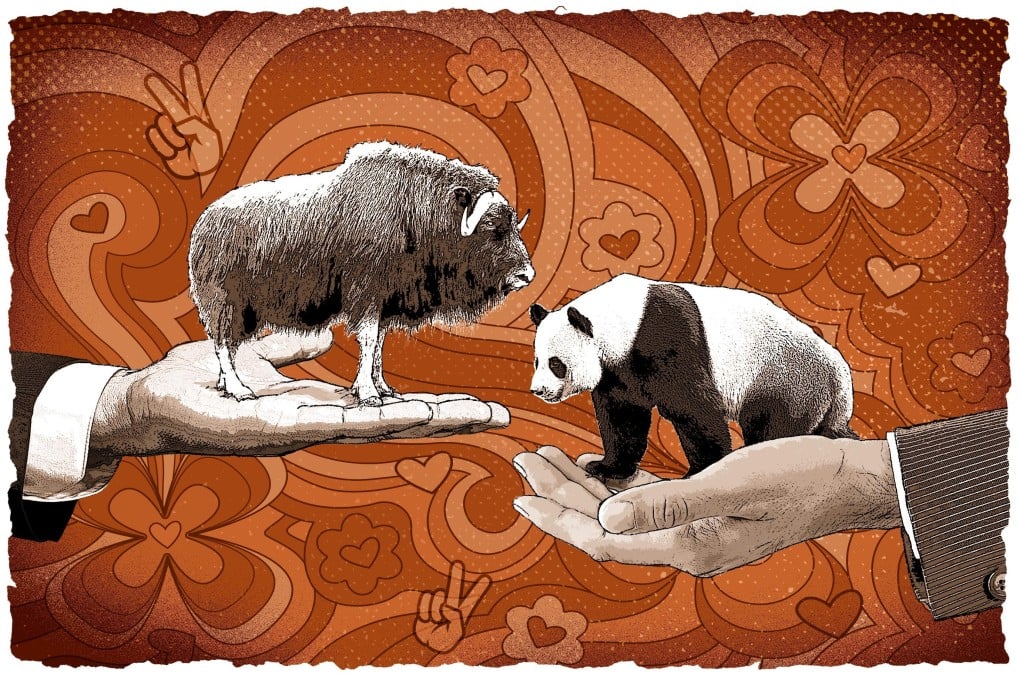50 years of panda diplomacy: the softest power meets the hard reality of US-China tensions
- Lingling and Xingxing arrived in Washington in 1972 as a symbolic offering of friendship between the US and China, sparking panda fever around the world
- As history has shown, the warmth the animal envoys created has not lasted, although the bears’ popularity has

In 1972, Beijing made one of the worst deals ever. After president Richard Nixon’s historic summit with chairman Mao Zedong, China gave pandas Lingling and Xingxing to the United States, warming American hearts after decades of Cold War distrust. In return, China got two musk oxen named Milton and Matilda.
“We got the better of it with the cuddly pandas versus the ugly musk oxen,” said Winston Lord, who was on the trip as a member of the National Security Council. “An immediate tactical victory.”
Fifty years later, as US-China tensions mount over Taiwan, human rights, security and global health, even congenial pandas are in the fray.
“The Chinese Communist Party has leveraged the cuddly panda in an effort to soften their image around the world,” said US Representative Nancy Mace, a Republican from South Carolina who introduced a non-binding resolution this month to retain pandas born in US zoos rather than return them to China as now required.
“We should not fund China’s panda propaganda campaign,” added Mace, citing a “sinister plot” that includes Bing Dwen Dwen, the Beijing Olympics mascot dressed as an astronaut. “Let’s get serious with our diplomacy and hit China where it hurts.”
